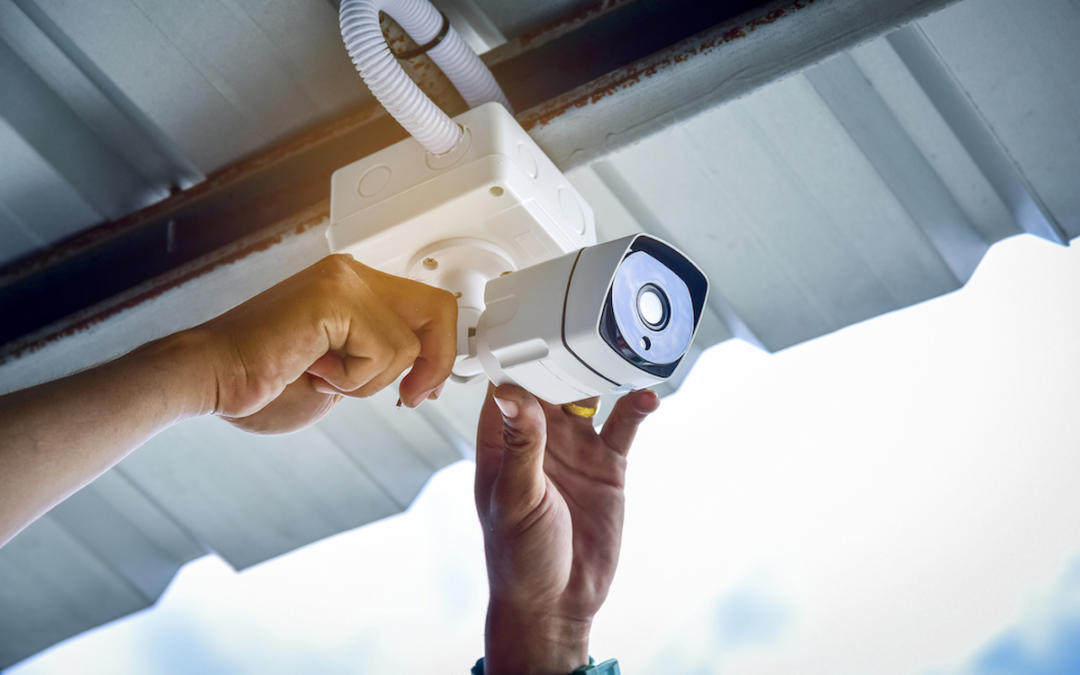CCTV systems are widely installed in residential zones, commercial establishments, and public spaces, acting as a conspicuous deterrent to illicit activities. Furthermore, their capacity to record intricate footage assists law enforcement agencies in the apprehension of offenders and the maintenance of public safety.
CCTV ensures security and tranquility by monitoring private property and protecting public areas. The extensive utilisation of this technology emphasises its critical function in upholding security and bolstering accountability in private and public spheres. Constantly assuring safety and security in teeming metropolises and CCTV cameras Manchester serve as steadfast guardians.
What’s the Difference?
IP Cameras
Let’s shift our focus towards the innovative IP CCTV cameras. An entirely new level of sophistication is introduced to the surveillance game by these bad guys. Internet Protocol, abbreviated IP, indicates that these cameras are capable of transmitting data via the internet or a local network. They are:
- Wireless
- Solar-powered
- Cloud storage
- Instant access
- Tagged footage search
- Analytics
- HD quality
- Audiovisual deterrence
- Smart capabilities
Analog Cameras
The analogue brigade, the surveillance veterans. Decades have passed since these cameras began steadfastly protecting residences, places of business, and public areas. What, however, is their secret sauce? The key factor is simplicity. Analogue cameras function by capturing video signals and transmitting them via coaxial cables to a recording device. Comparable to antiquated telephone connections, it is dependable but restricted. They are:
- Hardwired
- Requires traditional electricity
- Local storage
- Limited access
- Manual footage review
- Basic functionality
- Standard definition
- Limited deterrence options
- Manual camera control
Expanding the Difference b/w IP & Analog
Image Quality:
A discernible distinction between analogue and IP CCTV cameras pertains to the calibre of the footage they generate. Consider the following: IP cameras produce high-definition video that is crystal clear and capable of capturing minute details; it’s like viewing your favourite film in IMAX. Conversely, analogue cameras may result in pixelated, indistinct video that is akin to attempting to view a critically acclaimed film on a tarnished DVD.
Flexibility:
In terms of adaptability, IP cameras possess an advantageous position. These cameras’ internet-based technology enables them to be deployed virtually anywhere a network connection is present, granting you the ability to monitor every crevice and cranny of your property. Conversely, the positioning options for analogue cameras are constrained by the length of their coaxial cables.
Ease of Installation:
Surely, configuring a surveillance system does not require much thought or expertise. Fortunately, IP cameras make the process a breeze. These plug-and-play marvels can be operational in a matter of seconds, even for individuals lacking technical expertise. However, analogue cameras may necessitate a little more effort, as there are cables to manipulate and configurations to adjust. Comparable to the task of constructing a birdhouse from blueprints, assembling IKEA furniture is a straightforward undertaking, whereas the former may cause mental anguish.
Cost Considerations:
When considering the initial investment, analogue cameras may seem like the more cost-effective option on account of their comparatively lower initial purchase prices. But prior to reaching for your wallet, you ought to pause and contemplate the broader context.
Although IP cameras carry a higher price tag, they offer enhanced long-term value through their superior video quality, streamlined maintenance process, and resistance to technological advancements. Making this choice is analogous to deciding whether to prepare a supper at home or to order fast food; although the latter option may incur higher initial costs, it proves to be more economically viable in the long run.
Security:
Finally, let us discuss security, the root of this exercise. That is, after all, precisely the reason why CCTV cameras are installed. IP cameras provide superior cybersecurity and encryption capabilities, safeguarding your footage from inquisitive eyes. In contrast, analogue cameras are analogous to leaving the front door unsecured; while they may accomplish the intended purpose, they fall short of being considered Fort Knox.
The Verdict:
An exhaustive examination of the world of CCTV cameras, ranging from analogue pioneers to IP revolutionaries. In the end, the decision between the two alternatives is determined by your personal requirements and priorities. When seeking superior image quality, adaptability, and straightforward installation, IP cameras are the optimal choice. Therefore, make judicious decisions and have confidence in the knowledge that vigilant observers are monitoring over what is most significant.
Also Read: https://usatimenetwork.com/




